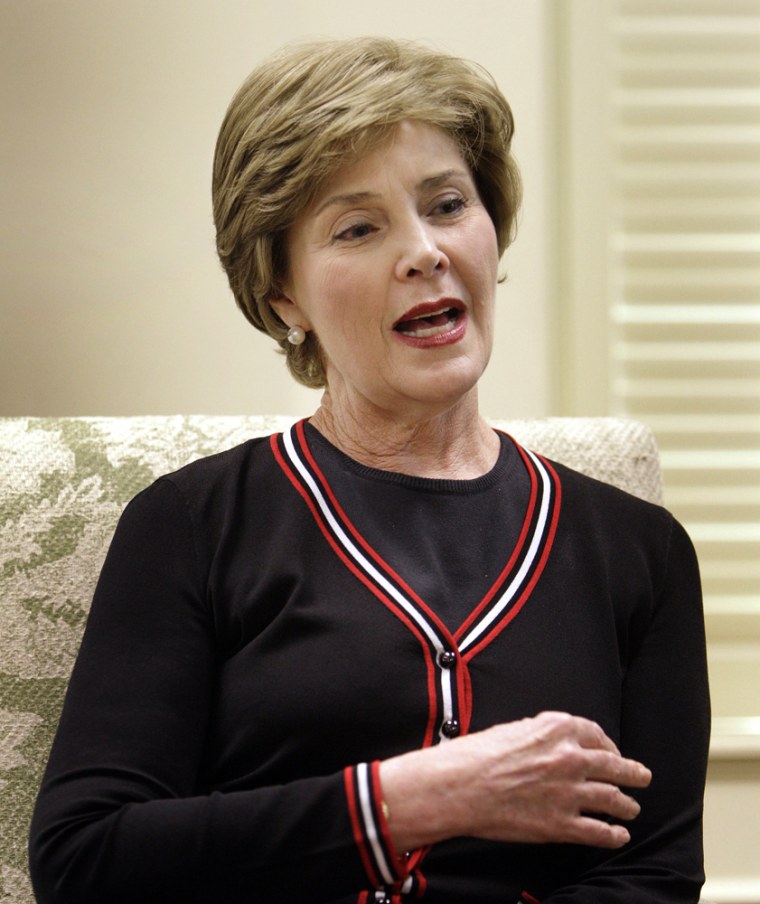First lady Laura Bush has a message for the people of Myanmar: The world is watching.
The recent crackdown by the Southeast Asian nation’s military government on pro-democracy activists must end, the first lady told a small group of reporters at the White House on Wednesday. The people of Myanmar, also known as Burma, are suffering, she said.
“I want them to know that the rest of the world does condemn these actions of the Burmese government, the harassment and jailing of political peaceful demonstrators,” Laura Bush said. “All these demonstrators want is for the government to be responsive to them.”
The ruling military junta in Myanmar has detained scores of activists and used gangs of hired thugs to snuff out protests that began Aug. 19 over higher fuel and consumer goods prices.
President Bush, in Australia for a summit of Pacific Rim leaders, also condemned the recent violence.
“It’s inexcusable that we have this kind of tyrannical behavior in Asia,” Bush said a joint news conference in Sydney with Australian Prime Minister John Howard.
Bush said he planned to discuss the issue with the 20 other summit leaders this weekend.
Laura urges U.N. to condemn action
During her interview, the first lady raised the imprisonment of Nobel laureate and pro-democracy leader Aung San Suu Kyi, who has spent more than 11 of the past 18 years in detention.
“She represents to me really the hopes of everyone in Burma, of all the Burmese, who long for a day of democracy there, a day without an oppressive regime,” Laura Bush said.
The military took power in 1988 after crushing vast pro-democracy demonstrations in Myanmar. Suu Kyi’s party won a general election by a landslide in 1990, but junta leaders refused to hand over power.
The first lady has raised Suu Kyi’s plight before in meetings at the United Nations and with senators in Washington.
Asked if her desire to speak out now was a departure for her into heavier political issues, she rejected the suggestion.
“I’ve been interested in political issues like this, policy issues around the world, for the whole time George has been president,” she said. “You know, I think this is sort of one of those myths that I was baking cookies and then they fell off a cookie sheet and I called (U.N. Secretary-General) Ban Ki-moon.”
She called him last week to urge him to condemn the junta’s treatment of dissidents and to press for the U.N. Security Council to prevent more violence in Myanmar.
China, Russia may be barriers
The council has agreed to discuss the situation in Myanmar this month, said Richard Grenell, spokesman for the U.S. mission to the United Nations. It is too early, he said, to say whether it will consider a resolution condemning the Myanmar government.
China and Russia, both of which have veto power on the council, are the major barriers to a resolution on Myanmar. They say the council should deal with matters of international security, not the internal security of a country.
The development comes ahead of an October trip to Myanmar by U.N. Under-Secretary-General Ibrahim Gambari.
“How do you bring about change in attitude of a regime? You can either change a regime, which is not an option available to us, or ... you align the international forces, particularly those who have influence on the regime, to bring it to bear,” Gambari said.
